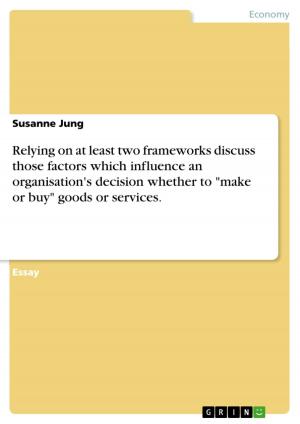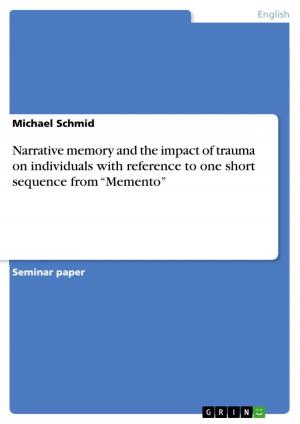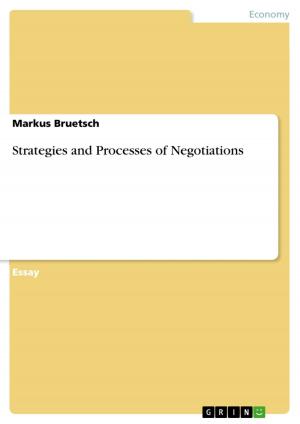'I'll be home by christmas' - An analysis of the first year of the Great War
An analysis of the first year of the Great War
Nonfiction, History, Germany| Author: | Christine Boado | ISBN: | 9783638045988 |
| Publisher: | GRIN Publishing | Publication: | May 8, 2008 |
| Imprint: | GRIN Publishing | Language: | English |
| Author: | Christine Boado |
| ISBN: | 9783638045988 |
| Publisher: | GRIN Publishing |
| Publication: | May 8, 2008 |
| Imprint: | GRIN Publishing |
| Language: | English |
Essay from the year 2008 in the subject History Europe - Germany - World War I, Weimar Republic, grade: A, , course: American History, 13 entries in the bibliography, language: English, abstract: The World War of 1914-18 - The Great War, as contemporaries called it, was the first man-made catastrophe of the 20th century. It was a war without parallel and all previous wars were eclipsed by its scale of destruction. Even in retrospect the war which began as a struggle between Europe's great powers, which were grouped into two hostile alliances, is one of the bloodiest wars ever seen with an estimated 10 million men who gave their lives on the battle field and over 20 million more wounded . It was the first intervention of American forces in European affairs for which they lost more than 100,000 troops who were killed helping to guarantee an allied victory . The Great War involved at least 32 nations directly who declared war against one another over the course of four years of world turmoil. Industrial expansion and wealth had a profound impact on economic life that lead to conflicts, jealousies and differences that were not easily reconcilable. Monarchies and democracies alike sought to cope with the changes and to protect their authority and major European nations sought to expand their wealth and territories looking for partners they could turn to in case of war. True to these military alliances, Europe's powers quickly drew up sides after the assassination of Austria's Archduke Franz Ferdinand. The allies -- chiefly Russia, France and Britain -- were pitted against the Central Powers -- primarily Germany, Austria-Hungary and Turkey. [...]
Essay from the year 2008 in the subject History Europe - Germany - World War I, Weimar Republic, grade: A, , course: American History, 13 entries in the bibliography, language: English, abstract: The World War of 1914-18 - The Great War, as contemporaries called it, was the first man-made catastrophe of the 20th century. It was a war without parallel and all previous wars were eclipsed by its scale of destruction. Even in retrospect the war which began as a struggle between Europe's great powers, which were grouped into two hostile alliances, is one of the bloodiest wars ever seen with an estimated 10 million men who gave their lives on the battle field and over 20 million more wounded . It was the first intervention of American forces in European affairs for which they lost more than 100,000 troops who were killed helping to guarantee an allied victory . The Great War involved at least 32 nations directly who declared war against one another over the course of four years of world turmoil. Industrial expansion and wealth had a profound impact on economic life that lead to conflicts, jealousies and differences that were not easily reconcilable. Monarchies and democracies alike sought to cope with the changes and to protect their authority and major European nations sought to expand their wealth and territories looking for partners they could turn to in case of war. True to these military alliances, Europe's powers quickly drew up sides after the assassination of Austria's Archduke Franz Ferdinand. The allies -- chiefly Russia, France and Britain -- were pitted against the Central Powers -- primarily Germany, Austria-Hungary and Turkey. [...]















